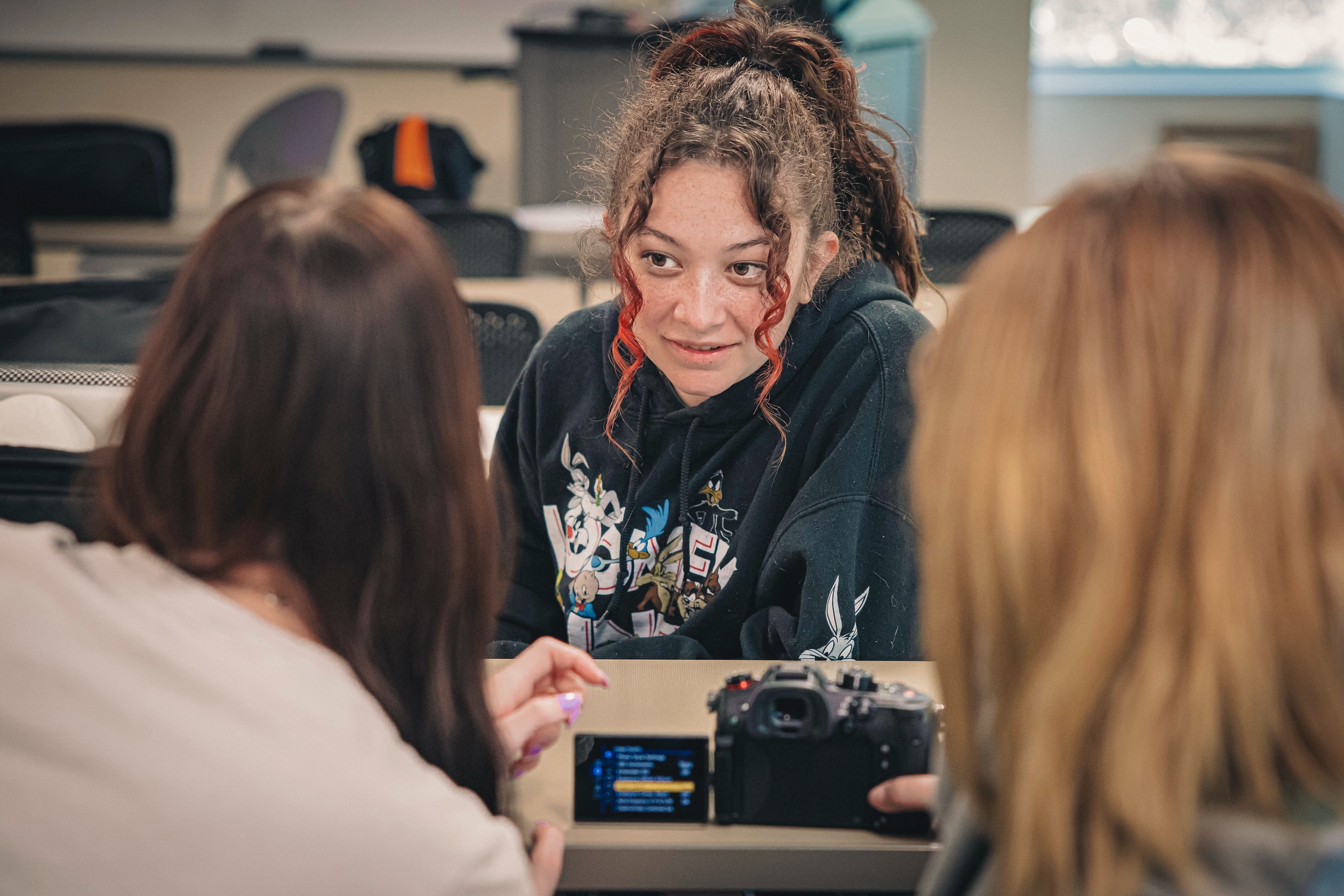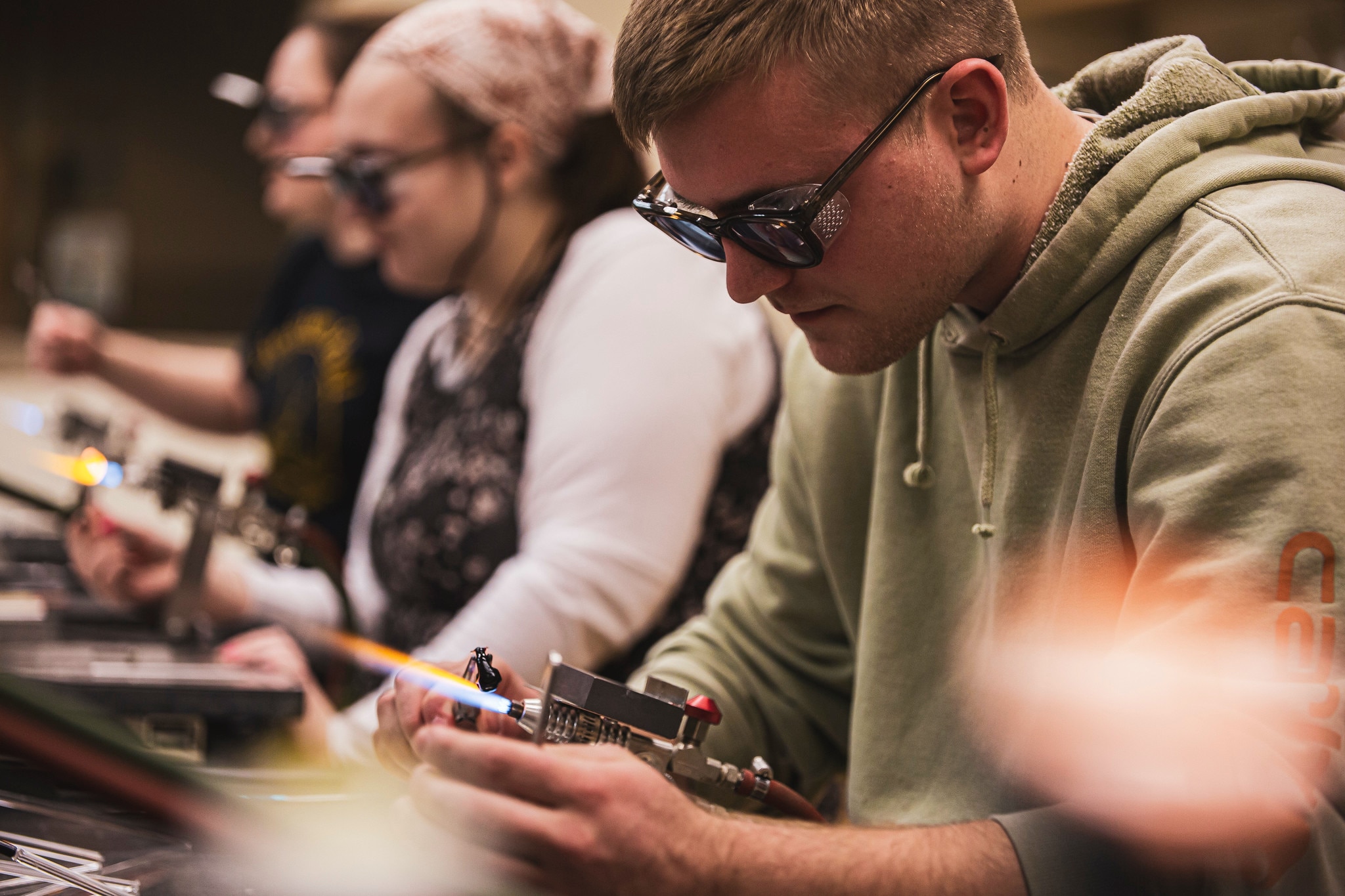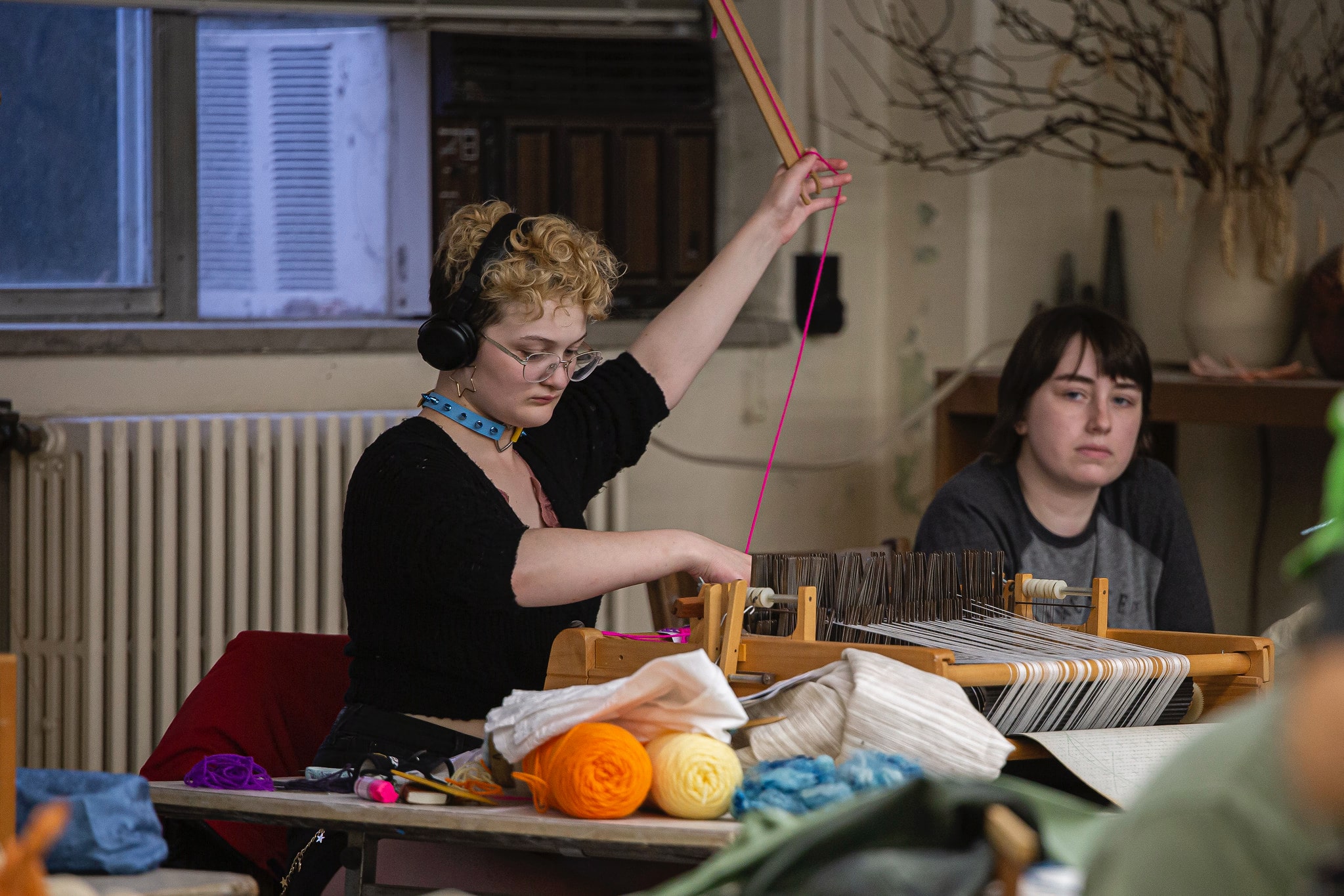Art: Pre-Art Therapy
Pre-Art Therapy is an integrative counseling discipline that focuses on the therapeutic use of art. Art therapists use art media, the creative process, and the resulting artwork to explore clients’ feelings, reconcile emotional conflicts, foster self-awareness, manage behaviors and addictions, develop social skills, and improve the quality of daily life for many diverse populations.

Where Creativity Meets Compassion
MU’s Pre-Art Therapy program educates and empowers compassionate, creative individuals for pre-professional employment and for graduate study in art therapy or related helping professions, by equipping them with the knowledge of art’s reflective and transformative role in promoting healing and wellness to those with physical, cognitive, or emotional challenges.
Program Information:
Major | BA
- 41 Credit Hours
Minor | Art
- 18 Credit Hours
Location
- North Manchester
Why Choose MU for a Degree in Pre-Art Therapy?

Comprehensive Curriculum
Supportive Community
Real-World Experience
The university provides opportunities for internships, gallery exhibitions, and industry partnerships, giving students valuable hands-on experience and connections in the arts and therapy sectors.
What You Can Do With Your Pre-Art Therapy Degree
Art Therapy Graduate Student
Pursues advanced study to become a licensed art therapist.
Rehabilitation Aide
Supports therapists in helping patients with physical or emotional challenges.
Mental Health Support Specialist
Assists clients in community or residential treatment settings.
Activity Coordinator
Designs and leads therapeutic art programs in hospitals or care facilities.

Average Starting Salary for Pre-Art Therapy Graduates
Graduates with a Pre-Art Therapy degree who enter the workforce in related support or entry-level roles can typically expect starting salaries in the low-to-mid $40,000 range, with some positions reaching up to $50,000 annually. Those working in healthcare or clinical environments where creative therapies are emphasized may earn closer to $60,000 as they gain experience or take on specialized responsibilities.
However, it’s important to note that becoming a licensed art therapist requires completing a graduate degree in art therapy or a related mental health field, along with supervised clinical hours and state licensure. The pre-professional foundation provided by a Pre-Art Therapy degree is an essential first step toward advanced study and a career in the therapeutic arts.

How the Pre-Art Therapy Program Supports Your Growth
Art Exhibitions and Engagement at Manchester University
Works from the University’s art collection are on display in Funderburg Library, Cordier Auditorium, the Science Center, the Academic Center and various other offices on campus. In particular, the main hallways of the Academic Center have become our galleries outside the galleries. In these halls, exhibits comprised of original art surround students and faculty each day on their way to classes and meetings.
Experiential Learning
92 Counties Art
MU students participate in this annual event, featuring artwork from artists residing in all 92 counties in the State of Indiana at the Honeywell Center.
Alumni Art Exhibitions
Alumni art galleries are featured every fall at Homecoming, and a single artist is often featured each spring at Alumni Days.
Senior Exhibition
Art students organize their senior exhibitions as part of our Senior Project course. From preparing show worthy pieces, to promoting their show, to working with the catering, students experience all the steps that go into exhibiting art. Beyond organizing the details of the event, the processing of evaluating their body of work provides a valuable overview of who they are as artists. We are proud to hang these exhibitions in Manchester University’s galleries, showcasing the art of our upcoming graduates.
Juried Art Spring Show
This annual exhibition features works by students at all levels, and the competition is open to all students enrolled at Manchester University. The show is juried by members of the Department of Art.
The Chicago Center
The Chicago Center for Urban Life and Culture (formerly Urban Life Center) provides Manchester students with the opportunity to earn credit and work and learn in Chicago as part of their academic program. The Chicago Center is open to students in all majors seeking an urban internship.
The Chicago Center offers special practicum experiences for social work majors and student teaching placements for education majors. As a long-standing academic partner with Manchester, the cost of this study away program is the same as our study away programs. For full-time students who are U.S. citizens, the cost of tuition, room and board is the same as attending Manchester, and financial aid applies. (Chicago Center summer programs are also available at additional costs for U.S. and international students.)
Representatives from the Chicago Center also visit campus each semester and appointments can be arranged. Students interested in the Chicago Center should begin planning early and contact The Chicago Center.
Meet the Faculty
Frequently Asked Questions About the Degree in Art: Pre-Art Therapy
What is Pre‑Art Therapy at Manchester University and how does it prepare me?
What kinds of coursework and experiences does the program include?
Do I need to pursue graduate school after MU to become a licensed art therapist?
Can I double major or combine Pre‑Art Therapy with other fields?
Pre-Art Therapy Learning Outcomes
Program Goals and Student Learning Outcomes
Through course work students will develop an understanding of the fundamentals of aesthetics and technical skills in visual art.
- SLO1: Students will develop projects using specified media in a manner that reflects technical skill and appropriate decision making to creatively apply the elements and principles of design.
- SLO2: Students will analyze and categorize works of art by technical styles, movements, and/or artists.
- SLO3: Students will engage in critique, suggesting revisions to refine creative perception and decisions, and to improve resulting products.
Through coursework and extracurricular experiences students will develop skills necessary for future careers in the arts as well as broader professional communities.
- SLO1: Students will present their work, describing process, appraising quality, and articulating meaning.
- SLO2: Students will create a series of digital portfolios – compilations of creative works illustrating technical skills, creativity, and breadth of media – developing from novice to professional quality.
Non-Discrimination in the Admission Process
Manchester University is committed to non-discrimination in campus life. The University does not discriminate on the basis of national origin, ancestry, race, color, age, sex, gender identity or expression, sexual orientation, familial status, religion, disability or veteran status in admissions or any area of campus life, including its educational programs, scholarships and loan awards, residence life programs, athletic programs, extracurricular programs, promotion and tenure policies and practice, and alumni affairs.
Manchester University is committed to carry out the provisions of Section 504 of the Rehabilitation Act of 1973 and the Americans With Disabilities Act, which provide for accessibility of University programs to the physically disabled.






